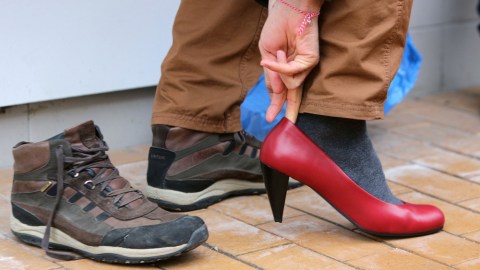Empathy Is the Key to World Peace

There is so much conflict in today’s world. Politicians are trying to figure out how to deal with gun violence issues, international relations, and vying against one another to gain control. It’s probably safe to say, given all that conflict, they (and the people who support them) don’t always feel much empathy for members of their opposing ideological groups.
In general, it looks as though the world suffers from an empathy deficit. We stick to our own groups and don’t have a lot of interest in experiencing life from another’s point of view. Fortunately, it’s not too late to change that.
Researchers from the University of Zurich seem to have found a way to help people of different social groups feel empathy for one another. The study separated participants into two groups, so each person had fellow members of their “in-group” that they identified with and also those in their “out-group,” who were seen as strangers. Study participants were directed to have a positive interaction with an out-group member, and then that same out-group member was later exposed to a painful shock. The initial participant was more likely to show activity in the brain associated with empathy in witnessing the out-group member getting shocked after having had the positive interaction with them.
As Maajid Nawaz notes in the video below, it’s important to put yourself in a mindset in which you’re comfortable approaching those different from and/or in opposition to you:





